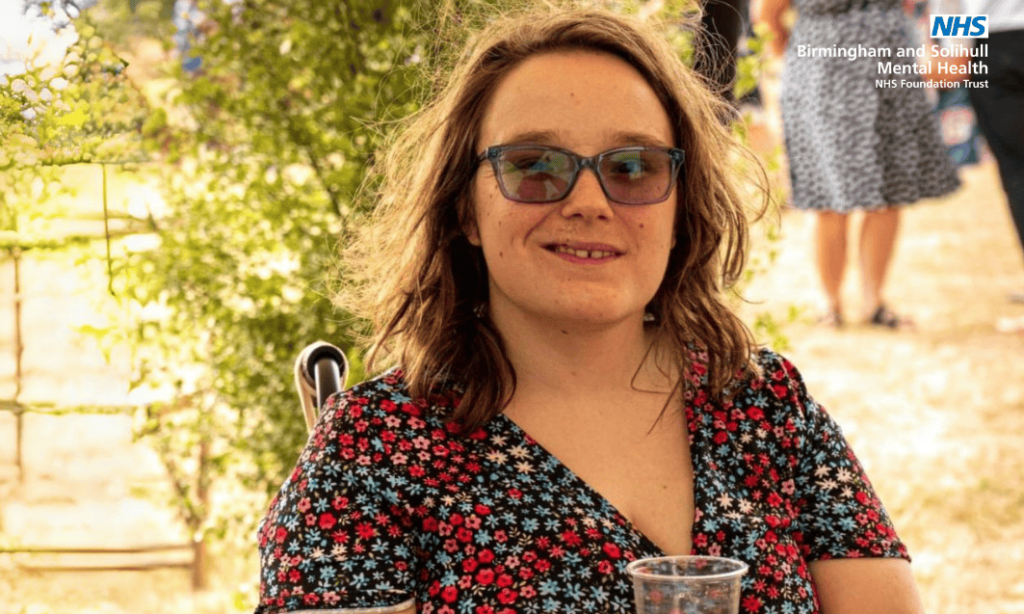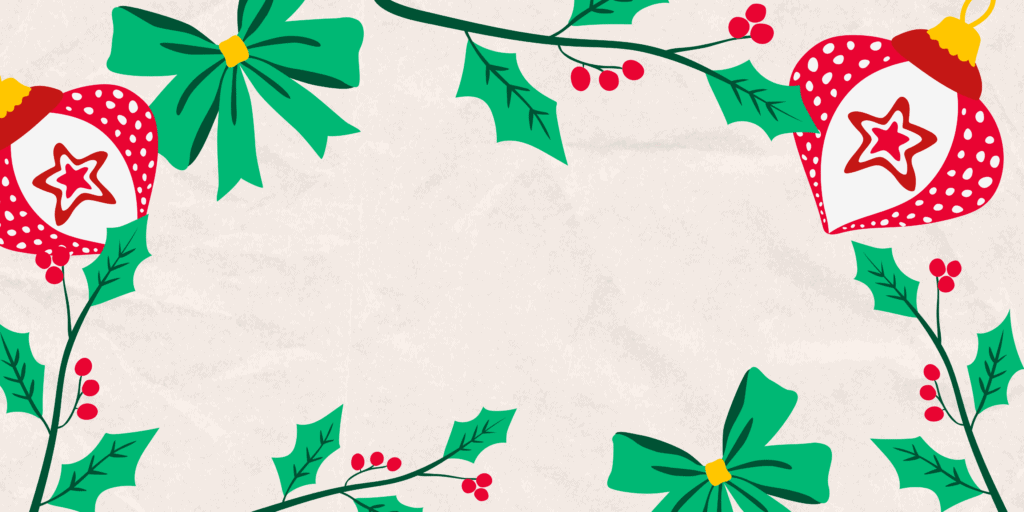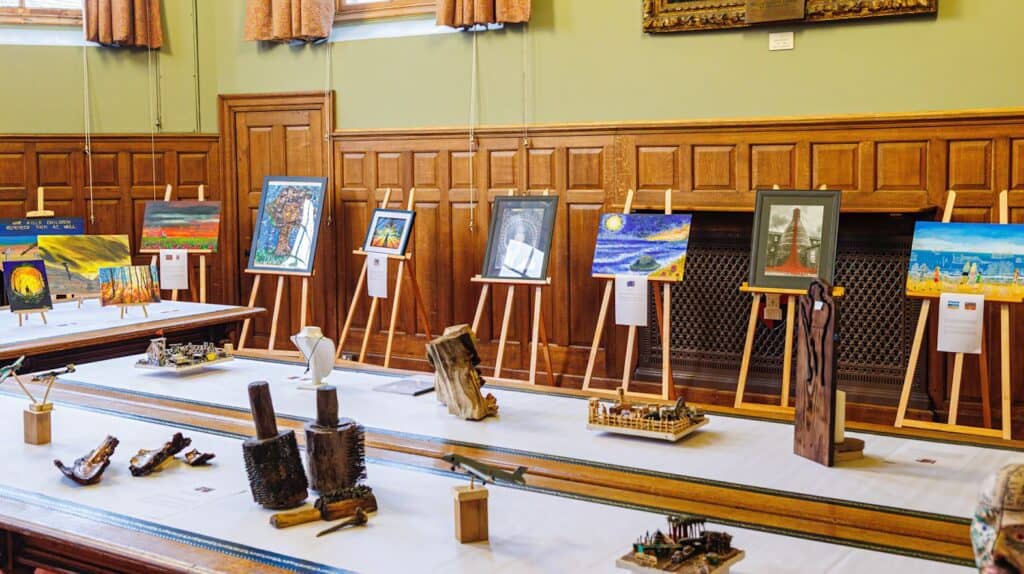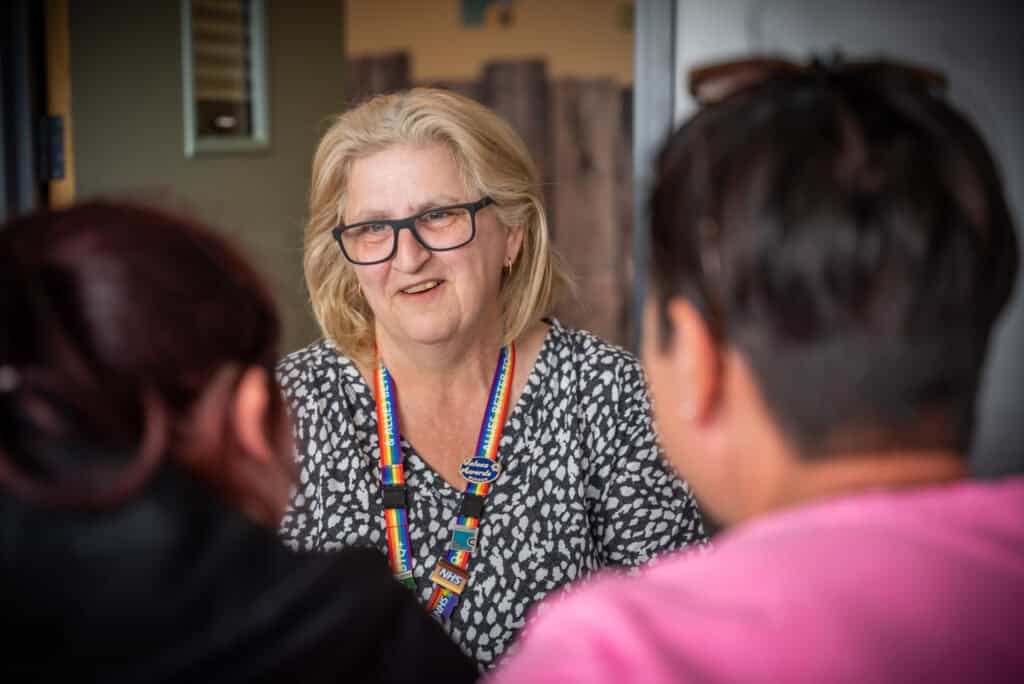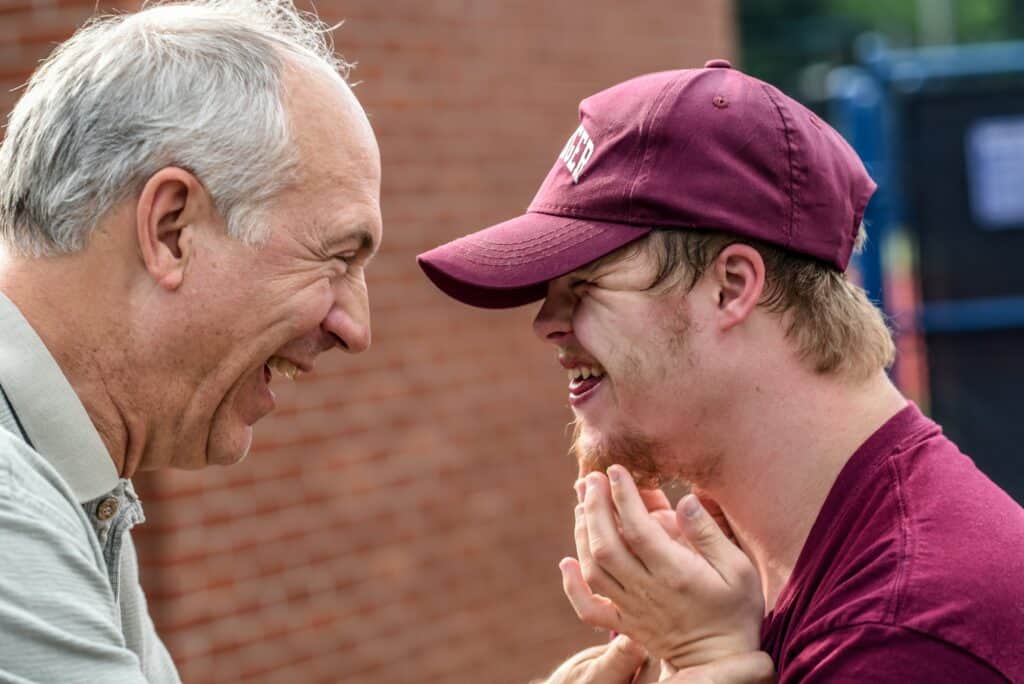We are all equally important and valuable, just some of us do things differently – that’s ok, it keeps the world interesting!
Our final staff story as part of Disability Pride Month features Ellie Crate, Senior Practitioner and Co-Chair for the Trust’s Disability and Wellbeing Network (DAWN). This is her story.
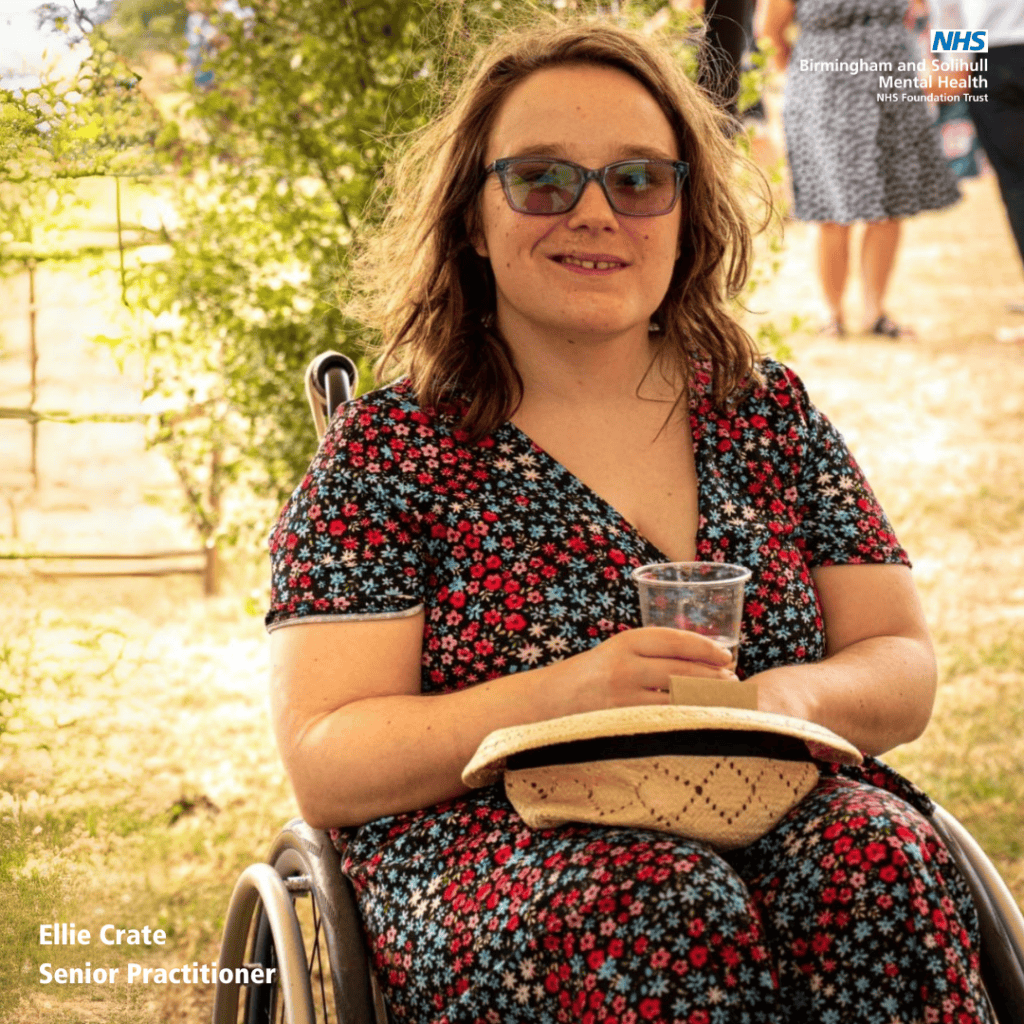
“Hi, I am Ellie, I work in the Memory Assessment Service as a Senior Practitioner and I am a qualified Occupational Therapist.
I have cerebral palsy, anxiety and dyslexia. I was born with my disability and for me Cerebral Palsy means I have balance and mobility difficulties, so I use a wheelchair to mobilise longer distances, though I can walk.
My disability is visible, and when I first began to get involved in the DAWN meetings, I met people who have invisible disabilities. When there were discussions around whether to disclose an invisible condition, my reaction was “why wouldn’t you?”
We are all equally important and valuable, just some of us do things differently – that’s ok, it keeps the world interesting!
I attribute this confidence to the support and encouragement from my mum, dad and brother who always make sure I know I can do anything I want to.
This confidence led to me being a junior national champion in swimming and to spending more exciting, but exhausting weeks in Italy skiing with dad making sure I got up the mountain.
In recent years I discovered wheelchair dancing and have been two times national champion with Freewheelin’ – Birmingham’s only wheelchair dance group.
In my life I have had countless experiences of ableism, most recently ableism almost meant I didn’t vote in the general election as the accessible entrance to my polling station was locked – luckily, strangers assisted me to gain access to vote. This illustrates the principle of the social model of disability which says it’s the environment, physical assumptions and attitudes of others which determine the level of disability and the extent it impacts someone’s day-to-day life.
I hope the recent DAWN campaign can support and encourage more colleagues to become active allies.”
Read more about our new campaign to counter discrimination based on visible/invisible disabilities or health conditions.
Published: 31 July 2024


